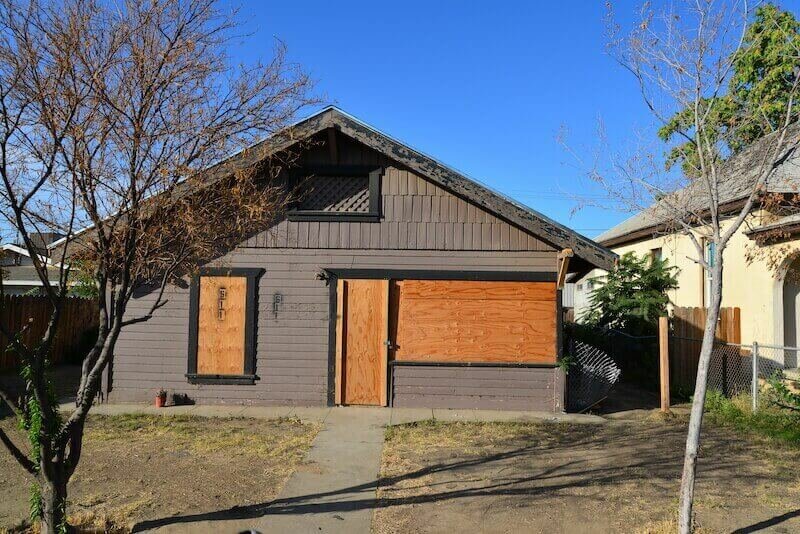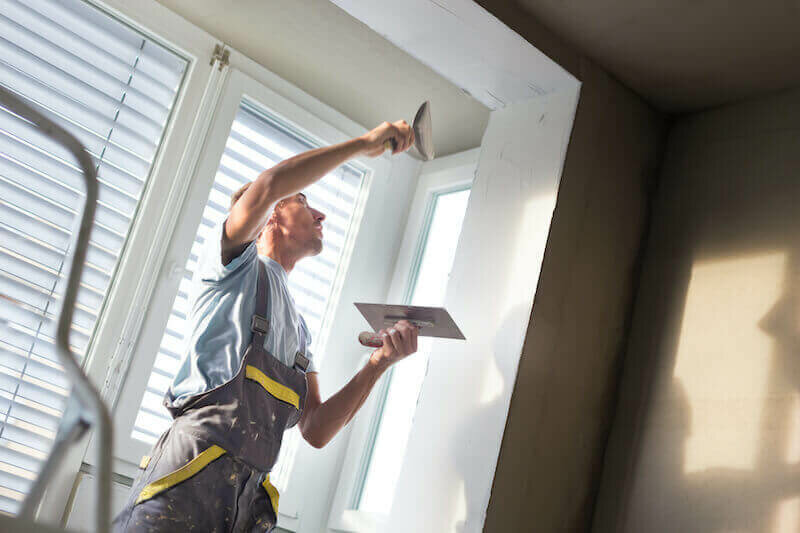What’s the first thought that comes to your mind when you hear the term condemned house? You’re probably thinking of a dilapidated, spooky house with creaky foundations and caved-in roofs. Surprisingly, this is not often the case.
A condemned building is one that a government body declares uninhabitable or unsafe for human lives. In other words, nobody can use or live on the property again because it poses a threat to their lives. When the government deems a property uninhabitable, they may cut off utilities from such property to discourage people from living there.
In most cases, the government condemns houses because the owners have triggered certain code violations. The government can essentially condemn new homes if they fail to live up to the building code that local authorities have outlined.
Once the property gets the tag, the owner and lenders will receive a notification, and the concerned authorities will post a public sign in front of the building.

Can You Sell a Condemned House in Vermont?
Selling a condemned house in Vermont is possible, but you must know that it’s not always easy. Before concluding whether to sell your condemned house or not, there are a few things you should know.
First, there are several reasons why the state can declare a house condemned. Some of the possible causes for condemning a home include:
- Part or all the building has experienced some structural damages.
- The building inspector finds some hazards that can endanger anyone living in the building.
- The building seems uninhabited or abandoned for more than 60 days
- The property suffers some hygiene problems that could endanger those living there and those in neighboring houses. Such issues could include black mold, infestation, or hoarding situations.
- The local authorities can also declare a house condemned based on eminent domain, which is when the authorities want to demolish the property and replace it with a public project. The project may be a public park, highway construction, airport, and other projects meant for public use.
It’s almost impossible to sell a dilapidated condemned house as a structure. Once a government entity declares your home condemned, the market value drops drastically, and getting homebuyers who will be interested in renovating such condemned property is difficult. The buyer will factor the demolition cost into their offer, which can significantly affect how much they’ll offer to buy the property.
Homebuyers are likely to find it difficult to obtain mortgage loans for such properties. However, you might be lucky and find buyers who have the backing of hard moneylenders. Finding such buyers is not as easy as it sounds.
Condemned House Selling Legal Requirements
A government entity or its agent has the right to take over private property for public use but must pay compensation while doing so. The process, otherwise known as condemnation or eminent domain, involves the government taking both legal title and physical possession of the property.
Another possibility is what happens in inverse condemnation. In inverse condemnation, the government or its agent leaves the legal title of the building to the owner but regulates away every possibility of the property’s usefulness.
Before the local government can allow you to sell a condemned house, the homeowner has specific requirements to meet. The property owner also has certain rights regarding the property.
For instance, the government must notify the property owner of a possible condemnation of their property. In some states, the governmental body tries to purchase the property by negotiating with the owner before pursuing condemnation.
The homeowner can also get an independent appraisal to know the property’s worth which will assist him during negotiation. You must remember, though, that the court will appraise the property based on the fair market value at the appraisal time.
Note that fair market value does not consider the amount the owner paid, nor the debts he owes on the property, nor the sentimental value.
If the owner succeeds in overturning the condemnation, he must repair the house to meet the state’s standard of plumbing, electrical works, ventilation, heat, etc. If the homeowner does not make the necessary repairs, the government entity may force them to demolish the property without compensating.
Options for Selling a Condemned House
There are three ways to sell your condemned house without much stress, and each option has its benefits and downsides. Let’s have a look at the options:
Sell Your Condemned House As-is
When the local government declares your home condemned and you consider the challenges that come with it, including all you will have to go through to overturn the declaration, you’ll realize that the process is tedious. Once the authorities serve you with the property condemnation notice, you’ll have a short time to prepare for your court hearing to defend why you deserve to hold on to the property.
In most cases, the government expects the owner to get an extension or make the necessary repairs. If they fail to do any repairs within the stipulated time, getting an extension might not be possible.
Before a property can become condemned, there’s a great possibility that it’s because the owner couldn’t afford to make these renovations in the first place. The best option is to sell the house fast as is to interested buyers. You can make some money off the building without investing any money in the property by selling it as is.

Make Major Repairs to Add Value to Your Home
If you have any chance at overturning the notice, you’ll need to invest in significant renovations like roof work, plumbing, foundation, and electrical work. You may also require the services of professional exterminators if you’ve left the building empty for a long time.
Repairing the house will increase its value, and you won’t have to sell your condemned house to real estate investors at a ridiculous price. However, this means that the repairs must meet the state code, and you must complete them before your court hearing.
While drawing your budget for the major repairs, do not forget that you may need the services of legal counsel to guide you through the legal aspects of the process. The counsel might be expensive. Remember that you’ll still have to pay your homeowner’s insurance, property taxes, and mortgage.
If you have the money to invest in the property and are sure that you can complete the renovation within a short time, this option is the best for you.
Sell to a Cash Home Buyer
The last option you can adopt when selling a house that needs repairs is to sell to cash home buyers. A cash buyer may be an individual real estate agent or you can try the company that buys houses in Burlington, VT. Cash buyers are not new to the real estate market and can give you a reasonable cash offer on your condemned property.
You may experience difficulty finding the right cash buyer who will buy the property before your hearing date arrives, but it’s not impossible. Several companies that buy houses may be interested in the building, mainly in an economically stable region.
Depending on the state of your home, the buyer might decide to make the necessary renovations if the house is not entirely irreparable or tear it down and start afresh. For instance, selling a house with mold can be tricky, but it’s not impossible.
Always Document Any Big Repairs You Have Made
If you need to sell your condemned house, you must have well-documented home improvement details for the building. These documents will be helpful when filing your tax return after selling the property.
Proper documentation of the repairs and improvements you make on your house will help you determine the basis and will help you when calculating your taxable income. The basis is simply the property’s monetary value for tax purposes.
Without knowing the basis of your property, determining whether you’ve made a profit on its sales will be difficult. If your property has a $300,000 basis and you sell it for $370,000, you’ve made a profit of $70,000. If you qualify for a home sale exclusion worth $70,000 or more as a single taxpayer, your entire gain is tax-free.
However, if you’re unable to determine the basis due to careless handling with the documents related to the improvements and repairs you made, you might forfeit such privilege.
It is advisable to document every variable related to your home’s tax basis. You can document the original cost with other documents like the purchase contract. It’s best to hold onto the receipts of any significant repairs you make on your house as long as the house belongs to you or for a few years after selling it.
Conclusion
As we’ve explained, a condemned house does not necessarily mean a dilapidated building. It’s just a term that shows that the house should no longer be home to anyone. You don’t have to give up because your house is uninhabitable. There are still several options available to you if you are thinking, “I want someone to buy my home in Vermont fast.”
You can sell the property as is, make some significant renovations if you have the funds, or sell to a cash home buyer. Many individuals and companies are looking to buy condemned houses.
